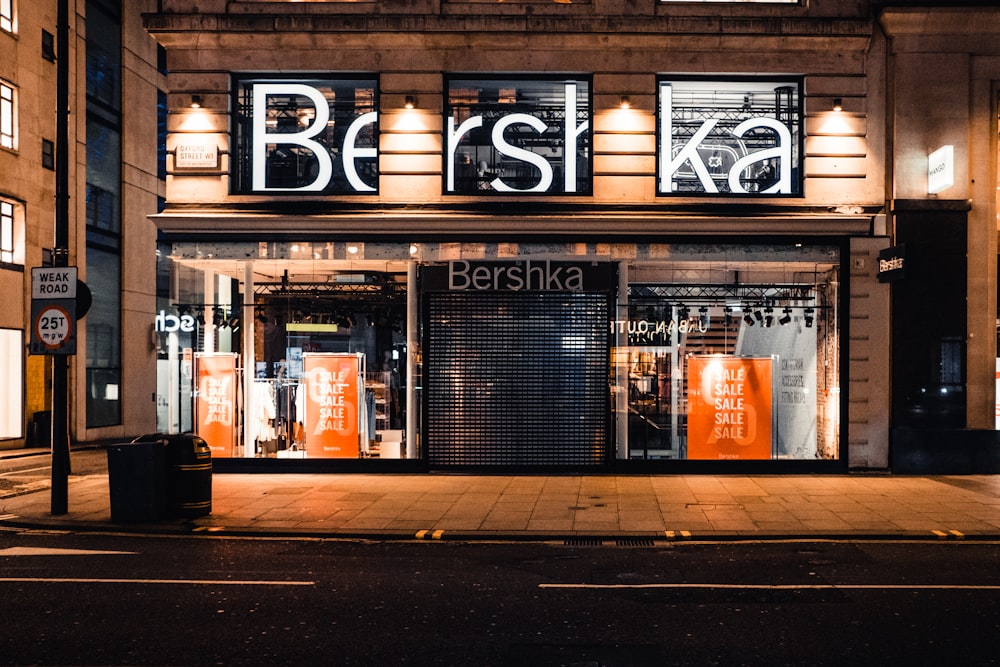Bershka, a popular Spanish fashion brand that was founded in 1988 by Inditex (as well as Zara and Pull & Bear), is a fashion concept aimed at the youth of today’s target market. It has over 1000 stores in 71 countries worldwide and is an emerging brand with its aesthetically unique, creative, and trendy offering.In this article we will see Is Bershka Ethical?

Is Bershka an ethical company?
With almost 10 million followers on Instagram and its fast-evolving market today, how is Bershka treating the environment? Is Bershka ethical in serving the planet, people, and animals? Let’s find out in the following topics:
- Bershka’s production and sustainability
- Labor and employment
- Their animal welfare policy
- And environmental impact
Production and Sustainability of Bershka
The brand Bershka has certifications on multiple auditing and environmental agencies such as Global Organic Textile Standard, the Ethical Trading Initiative, and the Science-Based Target Initiative. But Bershka is only a part of eight distinct brands owned by Inditex. All of these eight brands are huge on their own, yet Inditex only reports on sustainability as a mother company.
Inditex has grown into the third-largest company in the world with an extremely fast market speed, but this type of business model comes with huge social and environmental costs – producing multiple designs of clothing that targets change in style in a short period means that more than 60% of all its clothing ends up in landfills as the season changes. This massive production translates that an average person in America alone is throwing away at least 34 kilograms of garments per year.
The company’s endless loop of production of ever-changing styles generates an enormous amount of emissions, though not published nor fully traced. But signing the Fashion Industry Charter for Climate Actions, Inditex agreed to target a reduction on its emission of 30% by the year 2030. Bershka also declares that they use more sustainable fibers such as organic cotton and vegetable fibers at a certain percentage but still, the majority of the fibers used are sustainable enough to categorize it as eco-friendly.
Labor and Employment
Bershka received an average score of 56% in the Fashion Transparency Index in 2019. Part of Inditex’s Code of Conduct states that it protects workers and that audit is being carefully conducted to ensure this enforcement. They also published their list of suppliers as well as their information on audits and gender equality, forced labor, and freedom of association. However, it is reported that a huge part of Bershka’s final stage production takes place in Spain, with a reputation of medium risk in labor abuse. And on their part, they haven’t given clear evidence that they pay at least the average living wage.
But in August 2020, as the pandemic arises, reports claimed that Inditex pledged to maintain workers’ rights to the stability of payments, as well as to its suppliers. The company signed an agreement with IndustriALL – a global workers’ union – that health and safety standards for workers will be met, and committed to ensuring that stable payments for employees and suppliers will be given.
Bershka’s Animal Welfare Policy
Bershka claims that “[They] do not use leather or products which come from animals who are sacrificed exclusively to sell their skin, shells, antlers, bones, feathers, down or any other materials.” However, it continues to use leather and exotic animal hair on its products while making an effort in animal welfare.
With an “It’s a Start” rating, Bershka has a formal Animal Welfare Policy that is set with Five Freedoms, Fur Free Alliance, and their Fur Free Retailer program. The program claims that it does not use fur, exotic animal skin, down, or angora in any of its products. They use wool but are claimed to be sourced from non-mulesed sheep to avoid animal exploitation. Bershka cosmetics are also not tested on animals. However, they have failed to provide evidence that their products are animal cruelty-free in the production of their leather and exotic animal hair products. There is also none presented that trace their animal-based products in the first stage of production. A little extra way to go before Bershka could declare they are animal-friendly production.
Environmental Impact
With a few programs being taken into consideration by Bershka and Inditex’s continuously growing company, we can say that it is not that bad or zero (0) star when it comes to being eco-friendly. Bershka continuously fails to provide transparency to its consumers. There’s no evidence that it minimizes textile waste when manufacturing its products. There is also zero evidence or step-by-step procedure for their claimed recycled packaging materials, greenhouse gas emission per se. And for a huge brand that uses technology as its main platform, it isn’t that much to incorporate more eco-friendly products into its line.
In conclusion,
Bershka has a long way to go. Despite several positive steps they have taken and agreed with, Bershka effort can still be rated as not good enough to be claimed as an ethical brand. Sustainable fashion isn’t easily accessible for everybody due to various factors, but as more and more youth demand change and responsible production, ethics, and environmental impact are important talking points for any brand. And Bershka needs to be a little more proactive in achieving this to maintain their market and stay relevant.

